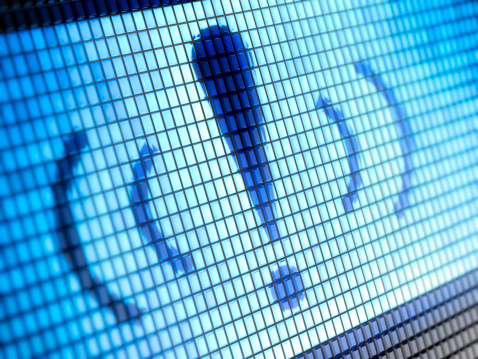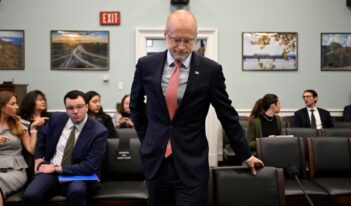
FCC proposal aims to enhance cellular communication during emergencies.
On the brink of natural disaster, many people prepare by stocking up on food, water, and first-aid kits to keep safe. Yet there is one misfortune that typically follows a natural disaster that individuals often do not prepare for: dysfunctional cell phones.
Cell phone usage is growing rapidly each year, and an increased number of consumers are relying on cell phones as their sole source of communication. In fact, Pew Research recently reported that over ninety-percent of adults in America own a cell phone, making it “the most quickly adopted consumer technology in the history of the world.”
Because of the surge in cell phone usage, the FCC views the importance of these daily reports during an emergency as a matter of life or death, as many individuals will need to rely on their cell phones to communicate with emergency responders. David Turetsky, Chief of the Public Safety and Homeland Security Bureau, has stressed “the importance of resilient communications networks,” during any disaster, “whether you are calling for help, checking on the well-being of loved ones, or just trying to resume day-to-day business after a disaster strikes.”
For example, Hurricane Sandy left millions of people without power and severely limited cell phone service. The combination of power outages and flooding knocked out between twenty-five to over fifty percent of all cell phone towers in affected areas.
While a certain extent of network loss might be unavoidable during a disaster, the effects of Hurricane Sandy varied among wireless networks. Some wireless networks experienced more severe disruptions than others.
The disparity in service unavailability among carriers has been a recurring theme in past natural disasters, including Hurricane Katrina and Hurricane Isaac. In order to enhance the reliability of mobile networks during emergency situations, the Federal Communications Commission (FCC) has issued a notice seeking comment on a regulatory proposal that would require wireless providers to release daily reports during an emergency or disaster indicating the percentage of their cell towers that remain operational.
The FCC anticipates that the proposed daily reports would hold mobile network providers publicly accountable for the extent that their networks fail during emergencies. The agency believes that public accountability will result in improved efforts from mobile carriers to ensure that mobile networks and services are able to remain operational during an emergency. As providers strive to improve their respective networks, the FCC projects that competition will increase among providers, giving consumers higher quality networks to choose from.
The FCC states that consumers would also benefit from the increased transparency of the network providers. The agency finds it imperative that consumers have access to as much information as possible when choosing among various wireless products and services. The FCC believes that requiring these reports from service providers will allow customers to accurately assess the reliability of various wireless networks when choosing a provider.
The proposed rule faces some opposition. CTIA–The Wireless Association (CTIA), an advocacy group for wireless carriers, contends that the FCC should gather more information before proceeding with the rulemaking process. Requiring providers to disclose information would not, according to CTIA, be useful to consumers, nor would it achieve the agency’s goals of service reliability and safety. CTIA further believes that consumers already have sufficient information available to them to make informed decisions concerning the reliability of different wireless providers.
Competitive Carriers Associations (CCA), another industry advocacy organization, also expressed concerns that requiring disclosures during a disaster would burden smaller wireless carriers by forcing them to divert limited resources away from repairing and restoring communication networks. CCA argued that the FCC might be ignoring factors outside of the service provider’s control that are contributing to prolonged outages during an emergency. Without taking all relevant factors into consideration, CCA believes that requiring these reports may fail to present an accurate picture of the reliability of a network.
The FCC has been evaluating the reliability of wireless networks during disasters since 2011. Following Hurricane Sandy, the agency conducted hearings to determine the best methods of addressing communication failures during disasters.
The FCC currently requires periodic reporting from mobile network providers to gauge general network reliability, but only collects data from providers during an emergency on a voluntary basis. Although optional, the agency estimates that most providers currently report data during disasters, with less than fifty providers not reporting. The agency believes that the majority of non-reporting providers are smaller companies.
The agency estimated that requiring these data reports would cost approximately $190,000 annually, across all providers.
The FCC is seeking comment on its proposal through February 18, 2014.



